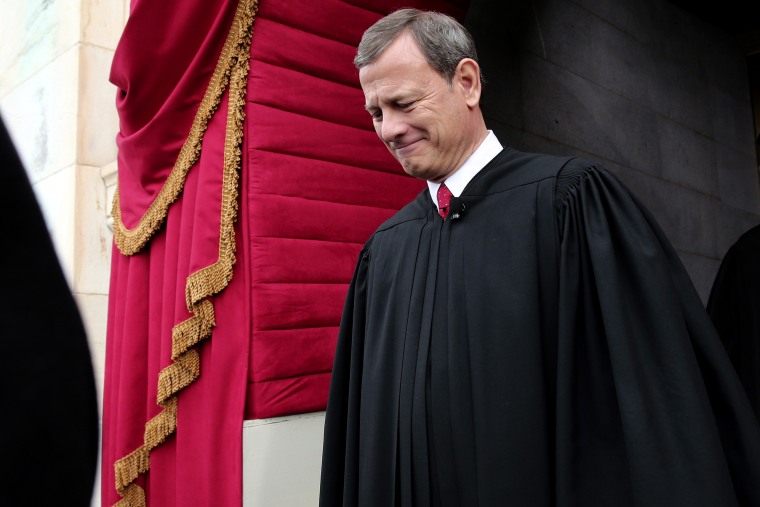WASHINGTON -- Chief Justice John Roberts did more than simply save Obamacare by ruling for the administration on Thursday -- he etched the president's signature policy into American law for a generation or more. And in a bitter irony for the political right, Robert's ruling actually puts Obamacare on firmer ground than it would have been if conservatives never brought the suit in the first place.
A narrow decision could have simply upheld today’s health care subsidies by accepting the Obama administration’s interpretation of the health law's tax rules. Roberts’ decision in King v. Burwell goes further, however, in a way many policymakers and critics have yet to fully grasp.
"For the first time, the Supreme Court is ruling that because Congress turned on this spigot for national health care funding, only Congress can turn it off."'
The ruling not only upholds current healthcare subsidies -- the first big headline on Thursday – it also establishes an expansive precedent making it far harder for future administrations to unwind them.
That is because Roberts' opinion doesn’t simply find today’s subsidies legal. It holds that they are an integral, essentially permanent part of Obamacare.
In other words, for the first time, the Supreme Court is ruling that because Congress turned on this spigot for national health care funding, only Congress can turn it off.
That is bad news for potential Republican presidents, who may have hoped that down the road they might hinder Obamacare by executive action. Now their only apparent route to dialing back the policy is by controlling the White House, the House, and a 60-vote margin in the Senate.
Roberts establishes this precedent by essentially wresting power from the White House, and handing it back to Congress. While that might sound like a good thing for Republicans, who control Congress now, the case attacked the statute’s original meaning, so Roberts hands that power to the Democratic Congress that enacted Obamacare. That legal reasoning is the crucial backdrop for one of the most striking lines in the opinion, Roberts’ closing flourish that Congress passed the ACA “to improve health insurance markets, not to destroy them.”
When you think about it, “Congress” doesn’t just mean any Congress here. He is invoking the intent of the Democratic Congress of 2010, and locking its pro-Obamacare approach into the amber of federal precedent. (Everyone knows that more recent Republican Congresses, which voted to repeal the entire law, might be perfectly happy “destroying” health care markets erected by the statute.)
This is also where the court’s neutral statutory analysis happens to reinforce one of the president’s core political arguments, that there really is no “Obamacare” without funding for the exchanges which bring the poor and uninsured into the market. As Roberts writes, funding to subsidize health insurance is of such "deep 'economic and political significance'" that it “is central” to the law’s purpose, so it cannot be watered down on the whim of a future president. (By the same token, he finds the Democratic Congress didn’t want to give that escape hatch to future presidents, and if it had, “it surely would have done so expressly.”)
RELATED: Scalia responds to ruling with a blaze of fury
While GOP presidential candidates roundly criticized Thursday’s ruling, no leading candidate addressed the way it boxes in future administrations. That may be for the simple reason that court opinions are complex. Roberts’ holding is couched in the arcane language of “agency law,” a line of precedent that settles disputes over when the president’s appointees get to decide what a law means, and when it is up to the Congress or courts. Roberts even set aside the typical approach from that precedent, a landmark 1984 case about how to interpret the Clean Air Act, citing a separate precedent for exceptions in “extraordinary cases.” That drew the withering, memorable complaint in Justice Scalia’s dissent that the Roberts Court has played favorites with Obamacare so much, “we should start calling this law SCOTUScare.”
As far as a majority of the court is concerned, however, that legal reasoning is now quite ordinary. Justice Roberts has twice led a coalition to reject conservatives’ attempts to achieve at the court what they failed to do at the ballot box, suggesting the court sees Obamacare as settled law, unless both houses of Congress and the president decide to unsettle it.
